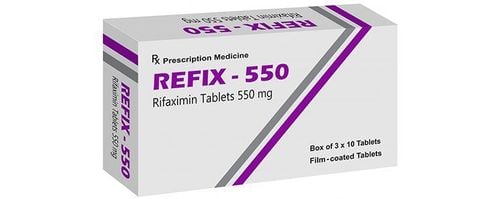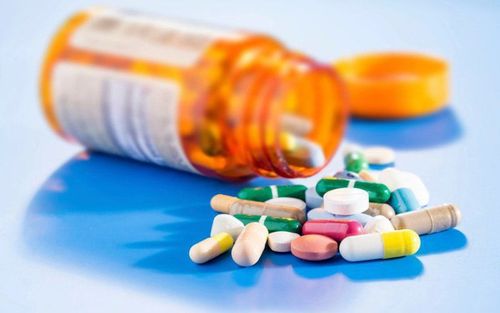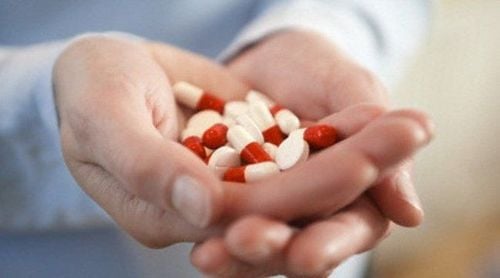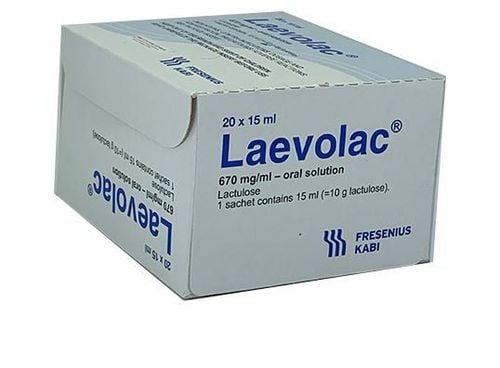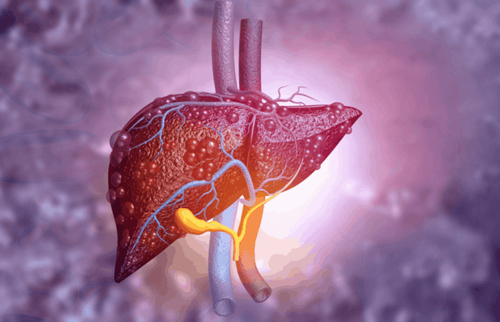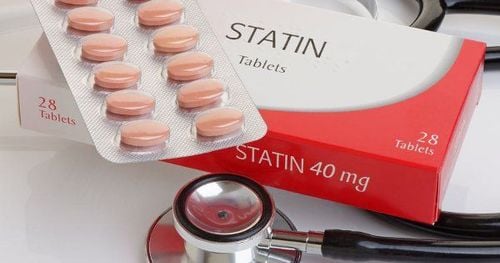This is an automatically translated article.
Nirmin Hepa 8% is a drug belonging to the group of gastrointestinal drugs produced in the form of a solution for intravenous infusion. Follow the article to answer the question "What is the effect of Nirmin Hepa?"
1. What are the effects of Nirmin Hepa?
Nirmin Hepa 8% is indicated in the treatment of hepatic encephalopathy in patients with cirrhosis or hepatitis through nutritional support. The patients are intolerant of common amino acids and require parenteral nutrition.
Ingredients of Nirmin Hepa 8%: L-isoleucin 1.04g, L-leucin 1.309g, L-lysin (as L-lysine monoacetate) 0.688g, L-methionin 0.11g, L-phenylalanine 0.088g, L -threonin 0.44g, L-tryptophan 0.07g, L-valin 1,008g, L-arginin 1,072g, L-histidine 0.28g, glycin 0.582g, L-alanin. Lysine is an amino acid that has the structure of a protein. Lysine is known to be one of the 12 essential amino acids for human health, which helps people enhance the ability to absorb and maintain calcium in the body. The drug is effective in increasing muscle mass, lowering glucose levels and improving anxiety. Helps to increase height, prevent and prevent osteoporosis for all ages (especially in the elderly).
Nirmin Hepa 8% is indicated in the following cases:
Prevention and treatment of hepatic encephalopathy in patients with chronic liver failure. Correction of admin acid balance disorders due to severe liver disease. Intravenous nutrition in liver disease. Nirmin Hepa 8% is contraindicated in patients with:
Severe renal failure. Abnormalities of amino acid metabolism due to causes other than liver. Severe heart failure. Disorders of water and electrolyte metabolism. Do not give the medicine to children.
2. Usage, dosage of Nirmin Hepa 8%
The drug is indicated for intravenous use. Nirmin Hepa 8% is a sterile, fever-free solution that can be administered either peripherally or centrally. Need for intravenous infusion with aseptic technique.
Dosage depends on the patient's age, weight, symptoms, severity of catabolism and amino acid requirements.
Adults: IV infusion 500-1000 mL/time. Peripheral venous infusion rate: 1.7-2.7 mL/min. Parenteral nutrition: 500-1000 mL in combination with Dextrose or another solution given as a 24-hour central intravenous infusion. As with other amino acid solutions, an overdose of Nirmin Hepa 8% may cause symptoms such as tremors, vomiting, nausea, and increased kidney damage. In that case, the infusion should be stopped immediately in this case. Infusion too rapidly can cause increased blood flow and electrolyte disturbances.
There is no specific antidote for overdose. Particular attention should be paid to the patient's respiratory and cardiovascular systems. Careful biochemical and biochemical monitoring is necessary and specific for abnormal treatment
If any abnormality occurs when overdose, it is necessary to notify the doctor or medical person in charge immediately for timely treatment.
3. Nirmin Hepa 8% side effects
Using Nirmin Hepa 8% medicine can cause some of the following side effects:
Common side effects such as: Vomiting, nausea, chest pain, palpitations, acidosis when infusion high volume or speed rapid... Rare side effects: skin rash, chills, fever, headache, pulse pain... If any adverse reaction occurs, discontinue infusion, examine patient, study appropriate treatment and withhold remaining fluid for examination if necessary.
People who experience an adverse reaction to a drug overdose often regress when treatment is interrupted. Peripheral intravenous fluids can generally cause venous wall irritation and thrombosis.
4. Can pregnant and lactating women use Nirmin Hepa 8%?
Currently, researchers have not concluded that taking Nirmin Hepa medicine has any effect on pregnant women. It is also not known whether Nirmin hepa can cause fetal harm when administered to a pregnant woman or may affect fertility. However, to ensure safety, only use Nirmin Hepa 8% for pregnant women when absolutely necessary, weighing the risks and benefits when using.
Because many drugs are secreted into breast milk, caution should be exercised when Nirmin Hepa 8% is administered to a nursing woman.
5. Does taking Nirmin Hepa 8% affect the ability to drive and use machines?
Because there may be unwanted reactions affecting the central nervous system such as fever, increased blood flow, patients using the drug should be careful when driving and operating machinery.
Please dial HOTLINE for more information or register for an appointment HERE. Download MyVinmec app to make appointments faster and to manage your bookings easily.




